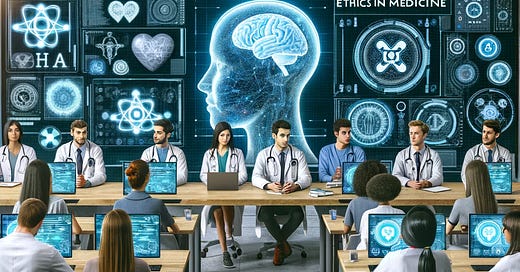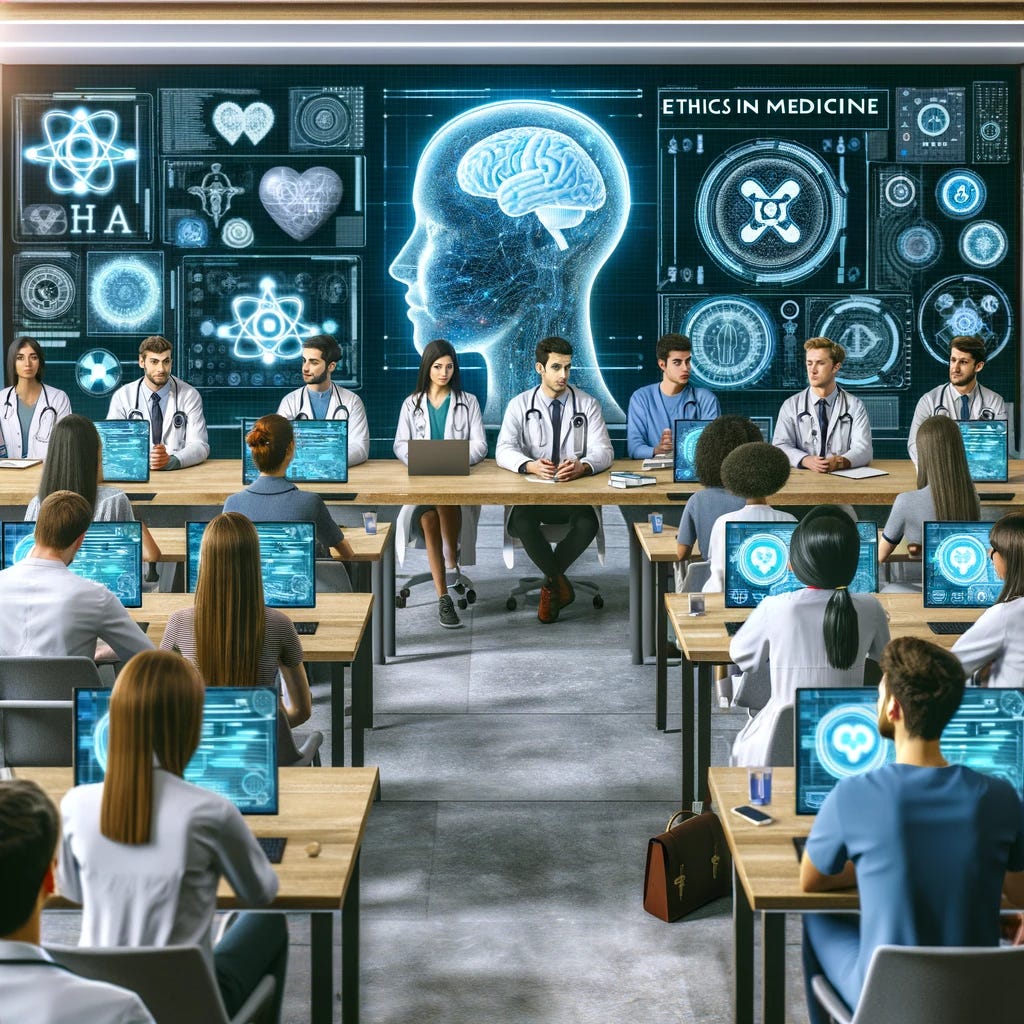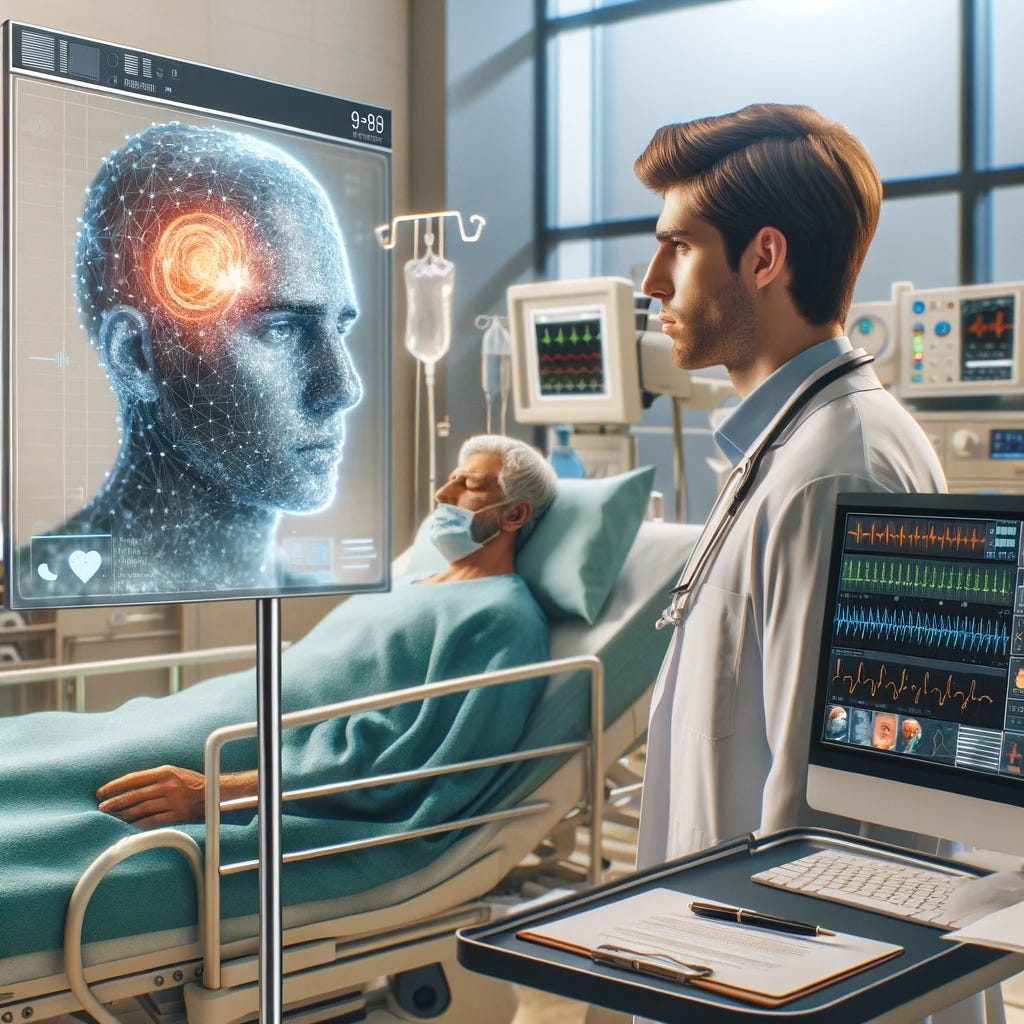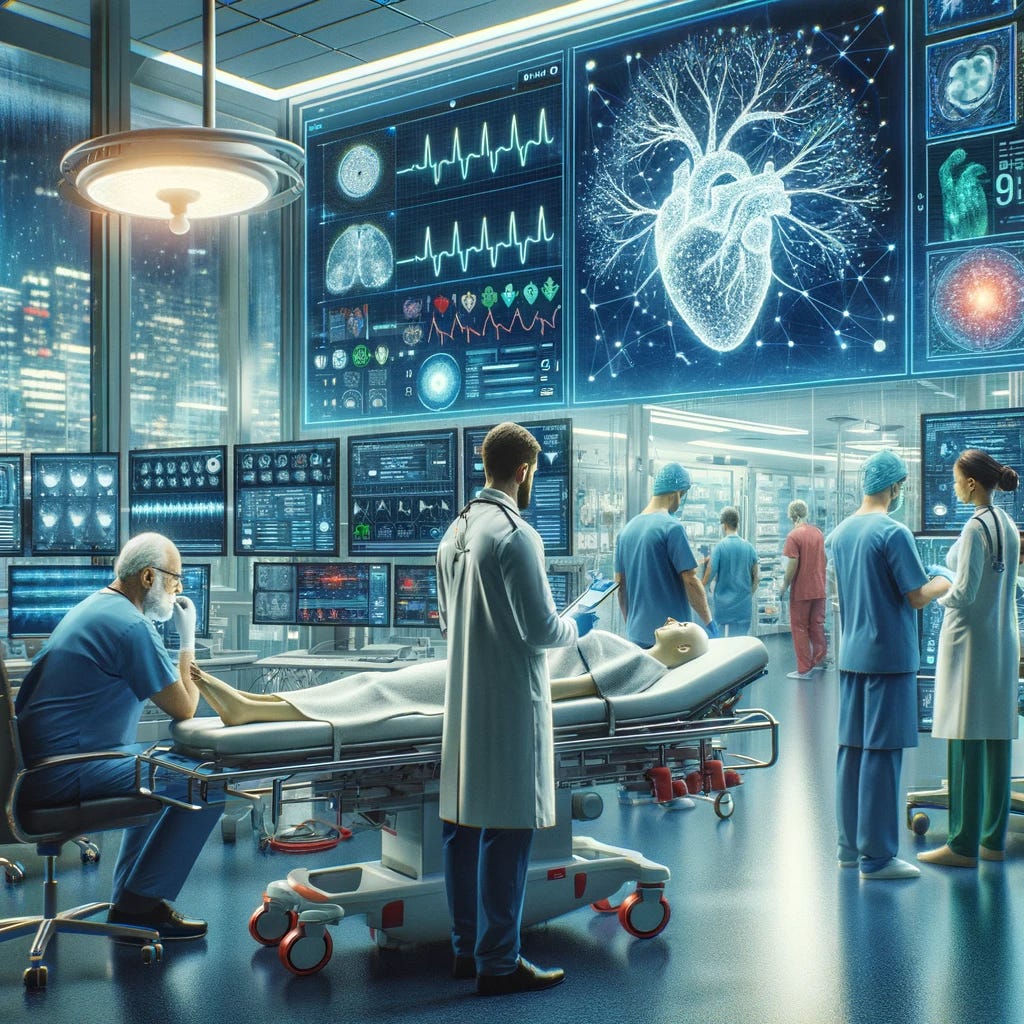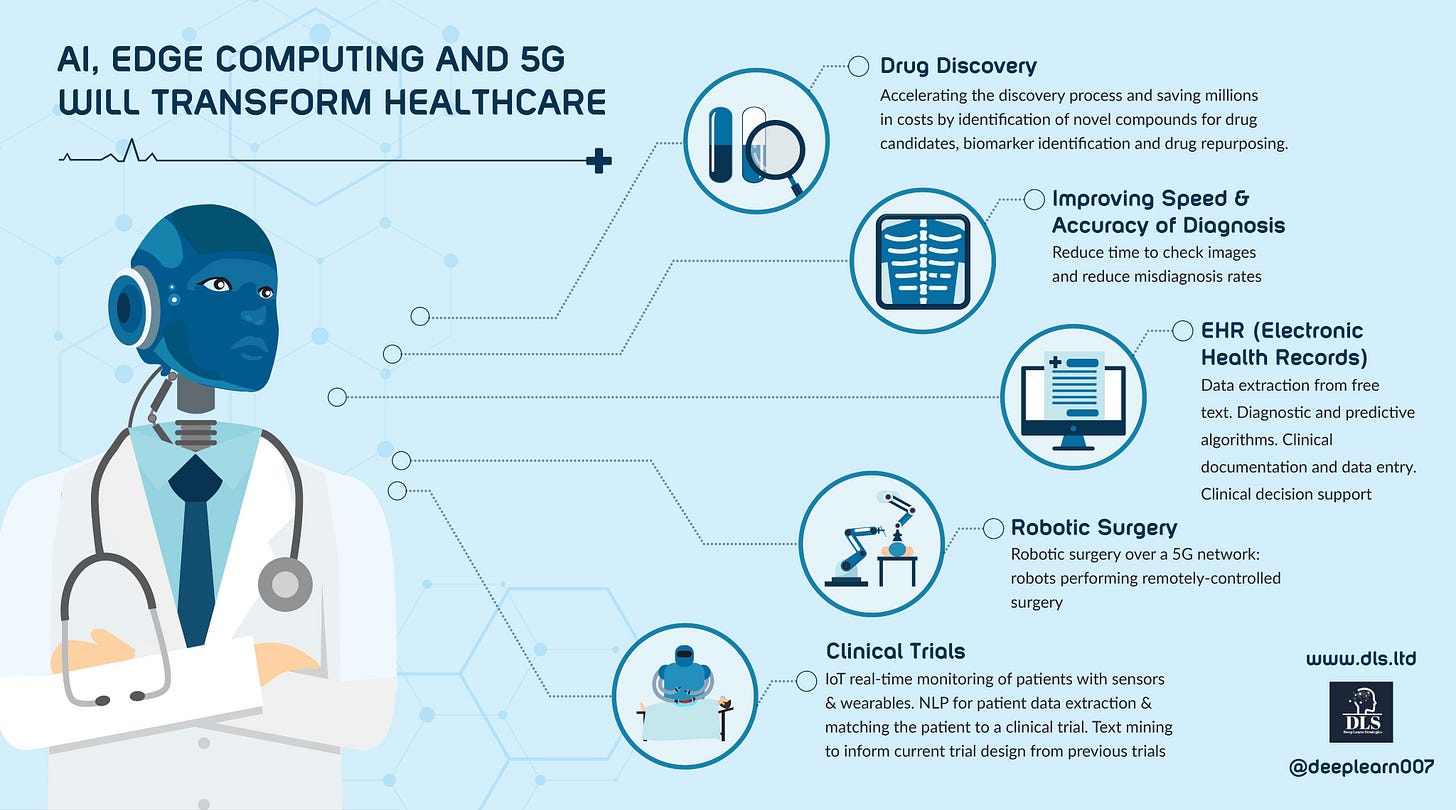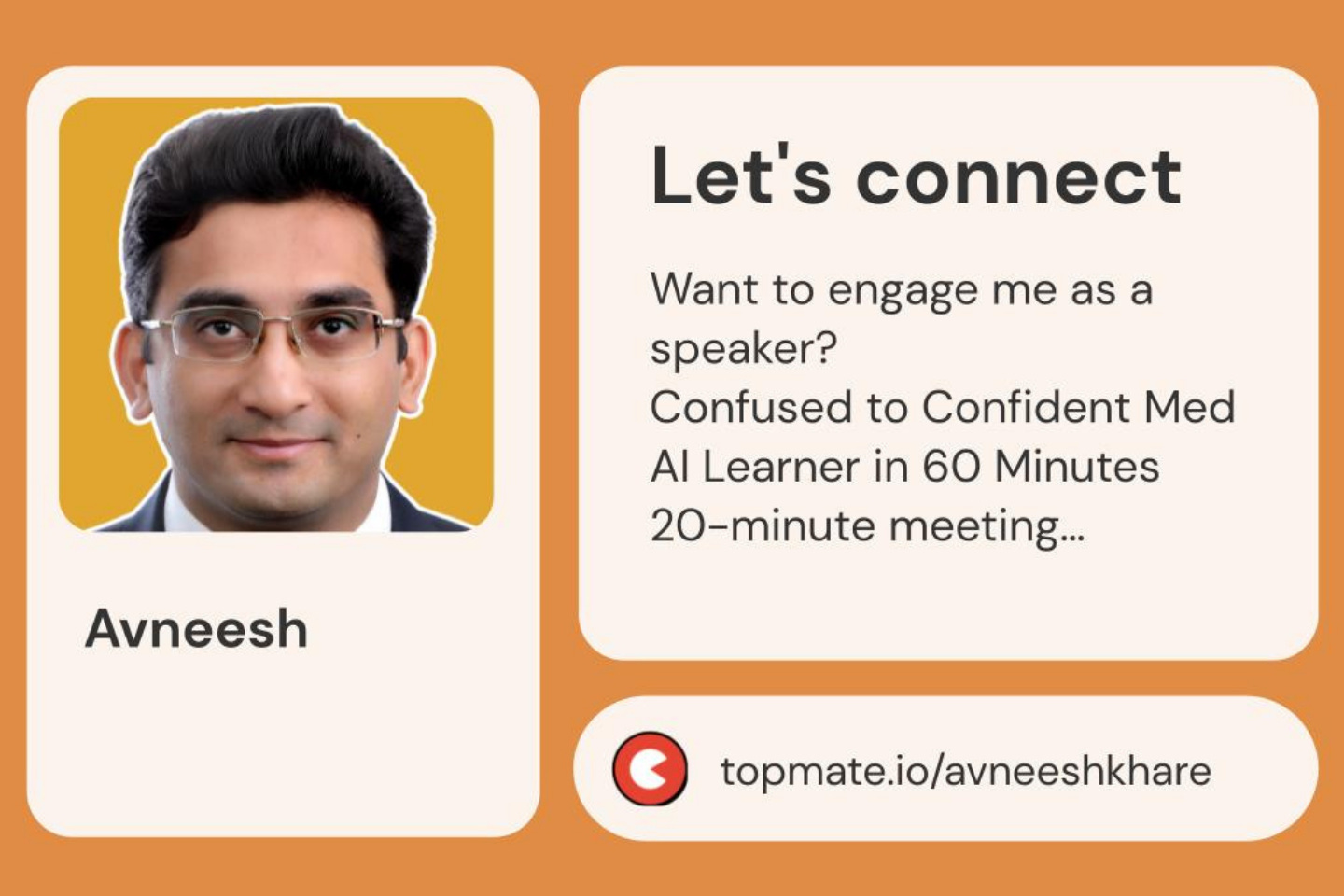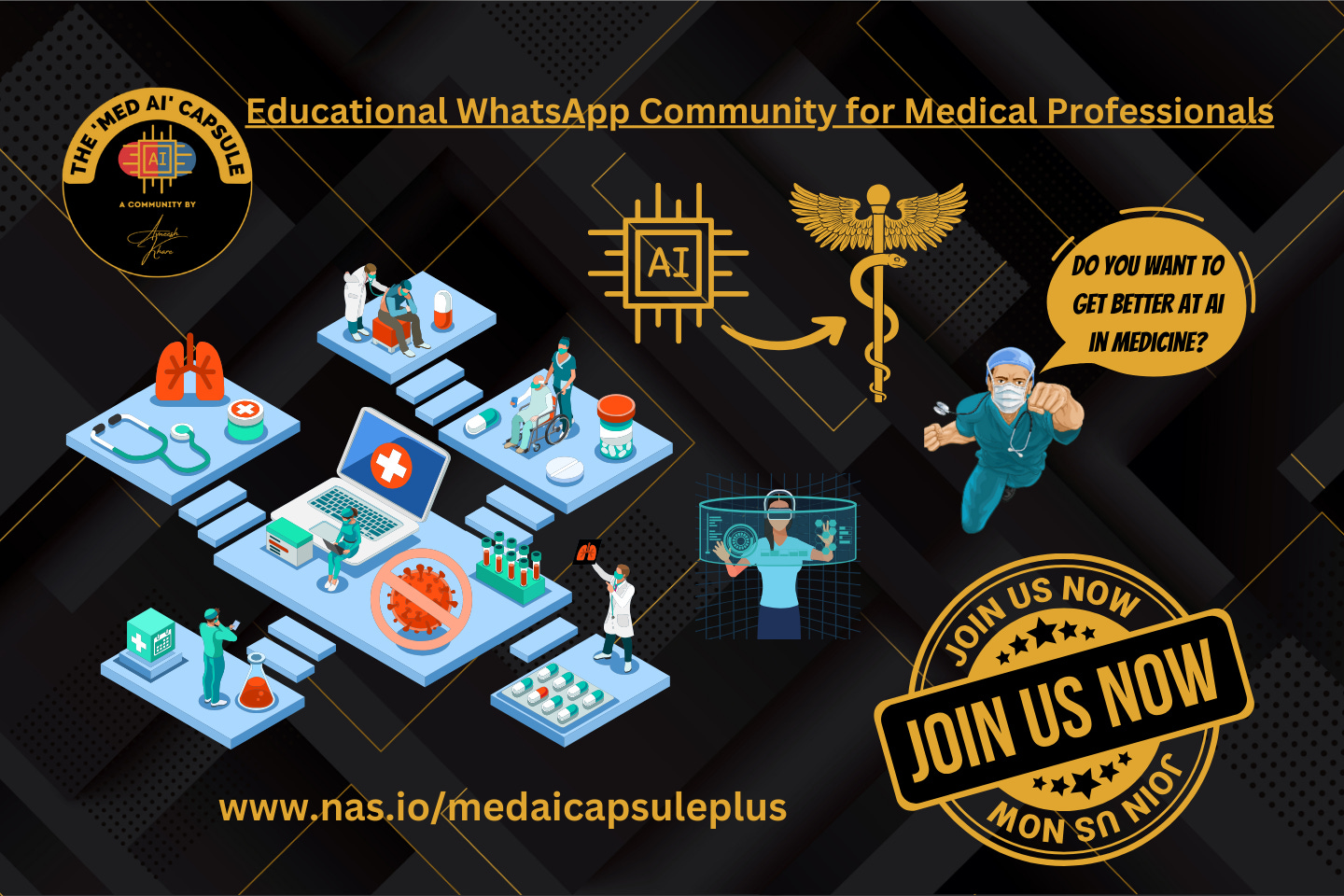🌐 Next-Gen Medicine: AI-Powered Medical Diagnostics and Education 👩⚕️📚, Blockchain in Pharma Security 💊🛡️, and Enhanced Emergency Care with Neural Networks 🚨❤️
Supplement to The 'Med AI' Capsule Newsletter 🤖🩺🚀
Dear Med AI Enthusiast,
Welcome to this fortnightly special feature, a curated blend of academic and industrial insights, complementing The 'Med AI' Capsule, your fortnightly news digest. 📰
Dive into the transformative world of artificial intelligence and emerging technologies shaping the future of medicine. ⚕️
Stay ahead with insights from our exploration of how these advancements are redefining healthcare. 🚀
In today’s supplement:
4 Med AI Research Updates
1 Emerging Tech Research Update
1 Infographic
Industry Showcase
Reading Time: 5-7 minutes
Med AI Research Updates 🔬
1. 💓 AI-Enabled ECG Model Enhances Heart Function Diagnostics with High Precision
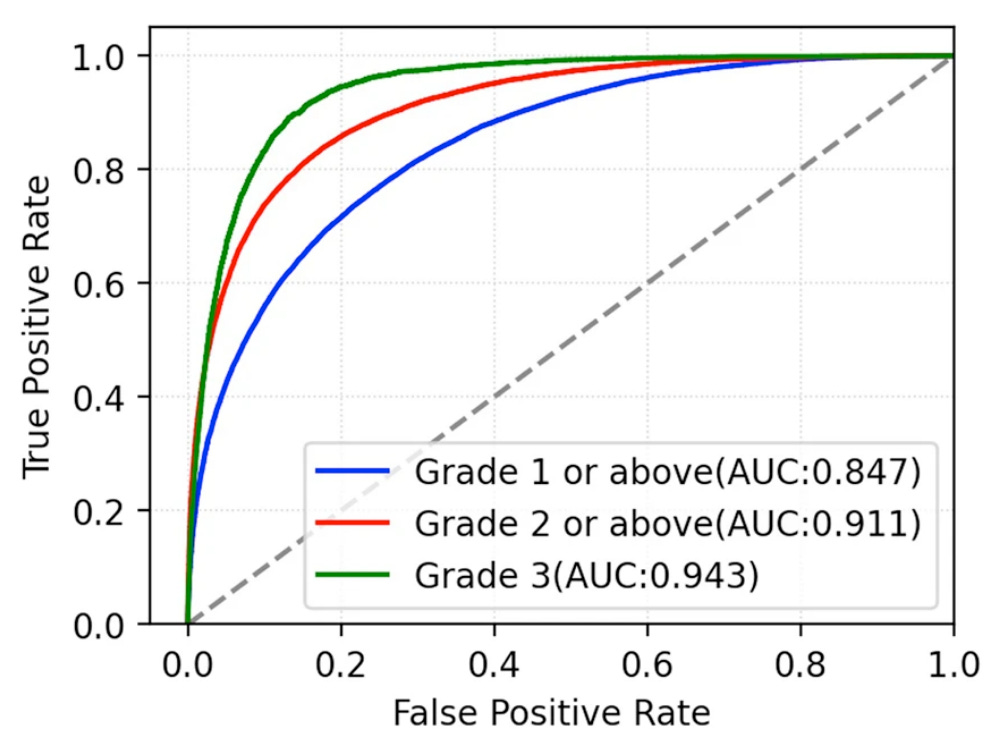
Key Findings: An AI-enabled electrocardiogram (ECG) model developed for detecting diastolic dysfunction and increased filling pressure in the heart achieved high accuracy. The model demonstrated an AUC of 0.911 for detecting increased filling pressure.
Conclusion: This AI-ECG model offers a promising tool for enhancing cardiac disease diagnostics, providing efficient and accurate identification of diastolic dysfunction and increased filling pressure, comparable to echocardiography.
Limitations: The study focused on retrospective data from a single medical center, indicating the need for further validation in diverse populations and prospective studies to fully establish its clinical utility.
2. 👩⚕️ Survey Highlights Need for AI and Ethics Training in Medical Education
Key Findings: A cross-sectional study among medical students in Germany, Austria, and Switzerland revealed limited AI and AI ethics education within medical curricula. Despite this, a notable portion of students had experience with AI-based applications, and a majority recognized AI's positive potential in medicine.
Conclusion: The study emphasizes the critical need for integrating AI and AI ethics into medical education, highlighting a discrepancy between current curricula and the evolving technological landscape in healthcare.
Limitations: The research is geographically limited to specific regions, suggesting a need for broader, global studies to understand AI's role in medical education worldwide.
3. 🤖 New Machine Learning Model Uses Facial Expressions to Predict Postoperative Pain More Accurately
Key Findings: A machine learning model using facial expressions to predict postoperative pain intensity showed superior performance with an AUROC of 0.93, outperforming models based on the analgesia nociception index and vital signs.
Conclusion: The study demonstrates the potential of using facial expression analysis for effective postoperative pain assessment, offering a more accurate alternative to conventional methods.
Limitations: The study is a pilot and was conducted in a single institution, indicating a need for broader research to validate these findings in diverse clinical settings.
4. 🚑 Advanced AI Neural Network Predicts Cardiac Events in Emergency Departments
Key Findings: An Artificial Neural Network (ANN) model demonstrated a 97% accuracy (AUC score) in predicting major adverse cardiac events (MACE) among emergency department patients. The study recorded 97,333 emergency visits, with the ANN outperforming other models like Random Forests and logistic regression.
Conclusion: The ANN model offers a groundbreaking approach for early detection of MACE in emergency settings, potentially improving patient outcomes.
Limitations: The study is based on single-center data, suggesting a need for larger, multi-center studies to confirm these findings and evaluate real-world applicability.
Emerging Tech Research Update 🔬
🔗 Blockchain Technology: A Game Changer in Combating Medicine Counterfeiting
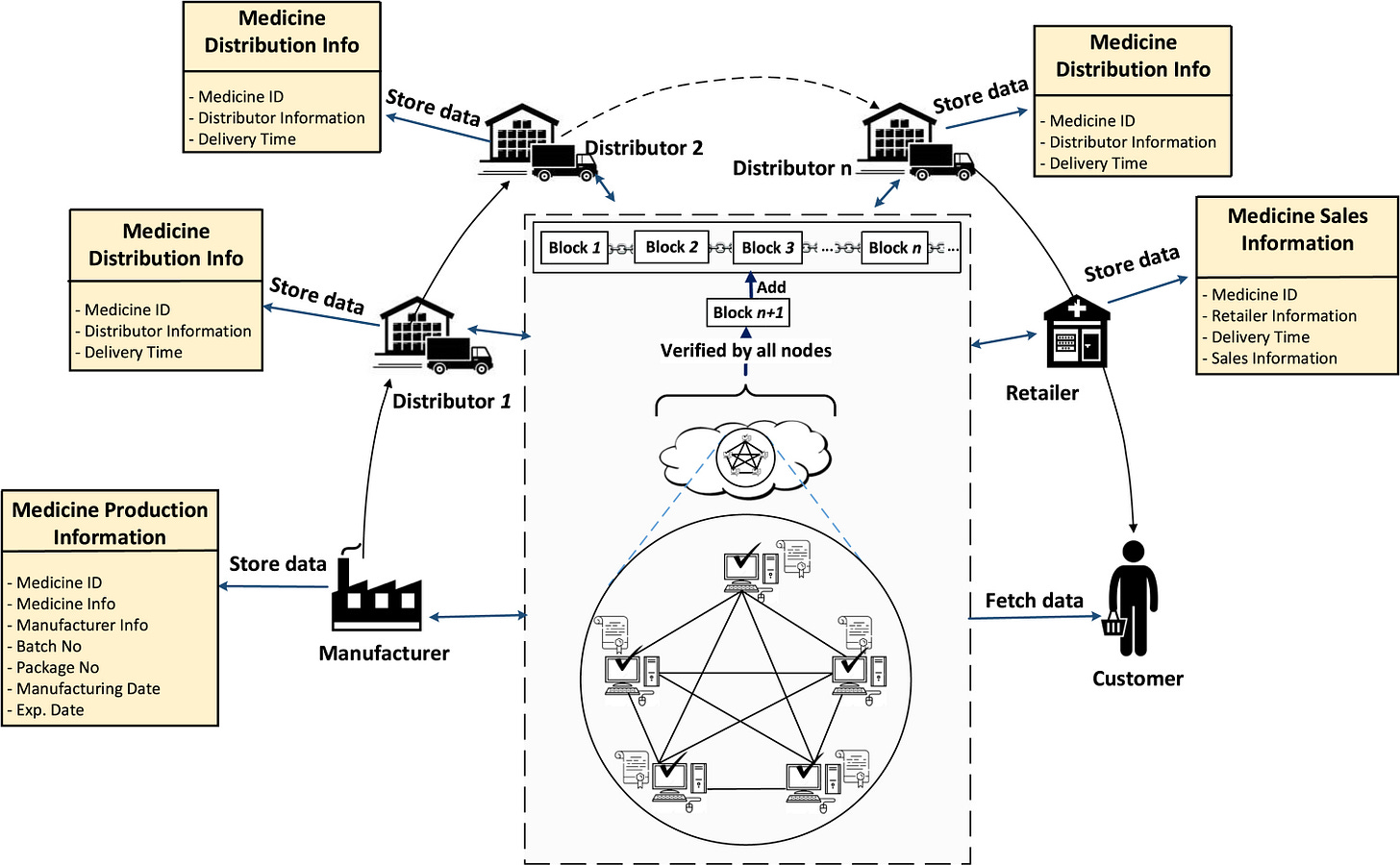
Key Findings: The study presents a blockchain-based framework targeting medicine counterfeiting, a major issue in public health, especially in developing nations. It demonstrates how blockchain technology can ensure secure, transparent tracking and verification of pharmaceutical products.
Conclusion: Blockchain's application in this context shows promising results in preventing medicine counterfeiting, offering a viable solution to a significant global health problem.
Limitations: The research primarily focuses on the context of Bangladesh, suggesting the need for adaptations and evaluations in other geographical settings to fully realize the framework's global applicability.
Infographic 📊
Industry Showcase 👨🏭
Cleerly - a digital healthcare company transforming the way clinicians approach the treatment of heart disease. Their clinically-proven, AI-based digital care platform works with coronary computed tomography angiography (CCTA) imaging to help clinicians precisely identify and define atherosclerosis earlier, so they can provide personalized, life-saving treatment plans for all patients throughout their care continuum.
Sirona - a company based in San Francisco, CA, that has created a cloud-based radiology operating system (RadOS). RadOS is a platform that unifies radiology IT applications onto a single system that enables radiologists to work faster and more efficiently.
Avaneer Health - a network and platform created by healthcare leaders, leveraging blockchain technology to facilitate interoperability and smooth data exchange in healthcare. It encompasses the Avaneer Network, a collaborative community of payers, providers, and innovators, and the Avaneer Platform, offering tools and services for data management, connectivity, and a Solution Exchange for commercializing healthcare innovations.
Stay tuned for our upcoming editions as we explore the latest breakthroughs and dive deep into the transformative power of artificial intelligence and emerging technologies, shaping a healthier future. 🚀
Warm regards,

P.S.: If you're a medical professional intrigued by artificial intelligence, but not sure where to start, feel free to reach out to me for personalised guidance.
You can also check out and join our educational WhatsApp Community for Medical Professionals.

